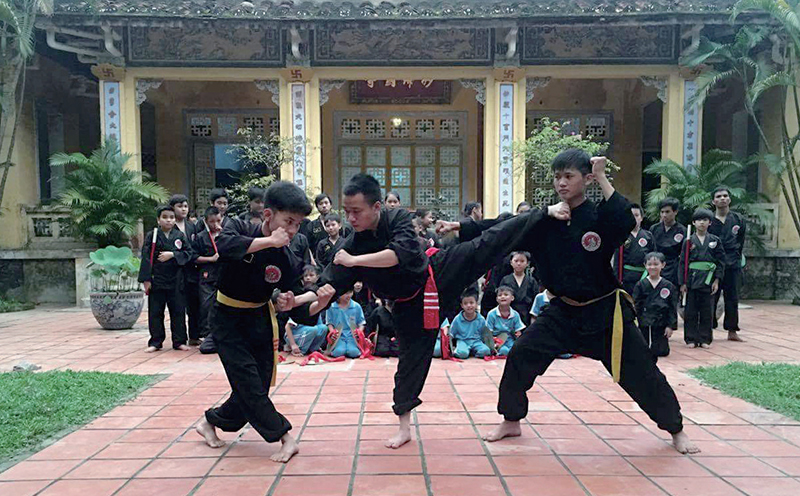
© Nguyen Ky Nam and Tran Van Dung 2020 |
|
|
|
|
| General Information |
Bach ho, meaning “white tiger”, is a martial art originating in Vietnam. There are many different styles of bach ho. The principle of bach ho is using your strength to attack the opponent’s weaknesses. Hands are often used in a way reminiscent of tiger’s claws. Bach ho also incorporates weapons like knives, swords, machetes, sticks, etc. Practicing bach ho is considered to be beneficial for mental and physical health (Nguyen and Tran 2020: 30-31). |
| History/Development |
Nguyen Huu Canh (1650-1700), a general under Nguyen Phuc Chu Lord, is seen as the creator of bach ho. The art was taught to the Vietnamese population in the 19th century and became especially popular in the 20th century among people joining the resistance movement against the French colonisation. Since the coloniser prohibited the practice they practiced in secret, often at night. Between the 1960s and the 2000s bach ho was among the most practiced martial arts in Vietnam (Nguyen and Tran 2020: 29-30). |
Transmission
(Policies/institutions) |
Currently many bach ho masters find difficulty in transmitting the art to students since there is a lack of assistance from the government, cultural groups and community associations. Masters have to earn their income by working a second full-time job, often forcing them to stop teaching (Nguyen and Tran 2020: 32). |
| Relevant Organisations |
- Association of Traditional Martial Arts of Thua Thien Hue |
| Additional Materials |
|
| References |
- Nguyen K. N. and Tran, V. D. (2020). “Challenges Facing Vietnamese Traditional Martial Arts Seen from a Case Study of Bach Ho”. In Living Heritage Series - Traditional Martial Arts as Intangible Cultural Heritage, Chungju: ICM and ICHCAP. | | |